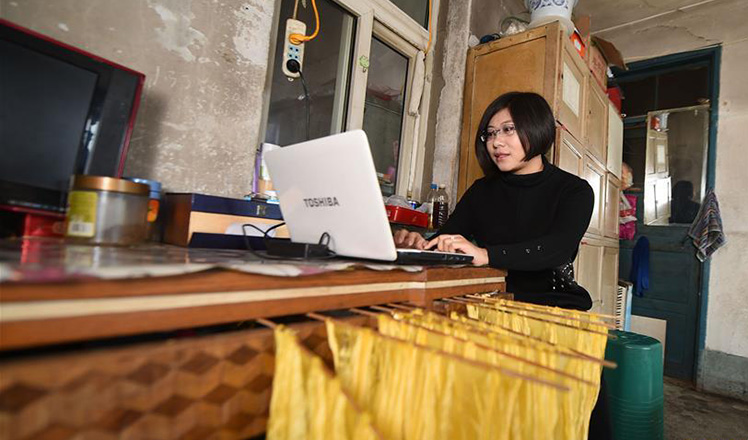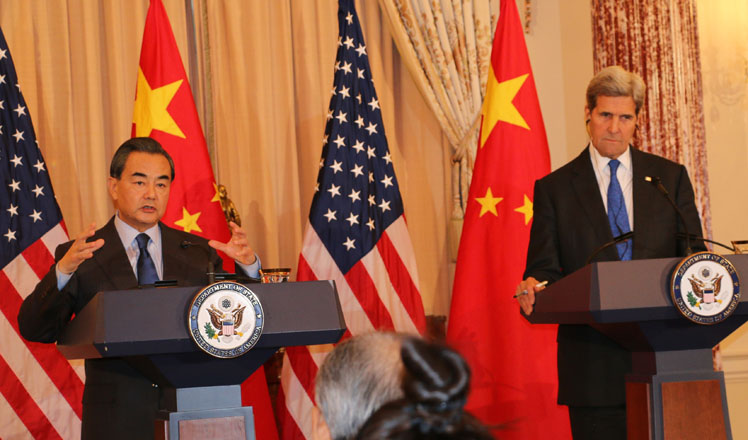Protection enhanced for cultural relics
Updated: 2016-02-25 08:23
By Wang Kaihao(China Daily)
|
||||||||
The State Council is beefing up measures to safeguard the nation's cultural heritage.
"Protection is the priority," read a statement issued after an executive meeting on Wednesday.
Management and law enforcement are to be strengthened, and an integrated registry system and a State-level database for cultural heritage will be established.
The country will also step up training in cultural heritage, as well as relics protection and restoration, the statement said.
Severe measures will be taken to stop the theft and sabotage of cultural heritage, it said, emphasizing the prevention of "demolishing old sites and replacing them with new ones".
"Punishment does not simply mean imposing fines," said Liu Mingwei, who is in charge of law enforcement under the State Administration of Cultural Heritage. "A complete administrative penalty process is needed for each legal violation.

"When a major legal violation happens, leaders of the local government will be held accountable. That is a crucial step to improve awareness of cultural heritage protection."
In addition, more museums will be given subsidies so they can open free to the public and exert a role in tourism.
Funding of cultural heritage protection was addressed, encouraging the development of creative industries and private museums.
Statistics from the State Administration of Cultural Heritage show that China had 4,510 registered museums at the end of 2014, 345 more than the previous year. Of those, 21.8 percent are private museums, 2.3 percent more than 2013.
Professionals welcomed the diverse approaches to the cultural heritage industry.
Song Xiangguang, a museology professor at Peking University, believes that the management of Chinese museums has much room to improve.
"For example, more delicately designed cultural products for museums, rather than simple tourist souvenirs, will create a link between the creative industry and cultural institutions and increase people's consumption of culture," Song said.
He added that the development of cultural heritage protection should rely more on different social sectors rather than being solely dependent on government aid.
- Obama makes last attempt to persuade Congress to close Guantanamo
- Over 110,000 refugees, migrants reach EU by sea
- DPRK warns to use weapons against US-ROK forces
- Trump's third straight win has rivals looking for answers
- Suicide bomber behind Ankara attack identified
- Cuba to deploy 9,000 troops to prevent Zika virus

 Future stars battle intense competition for stardom
Future stars battle intense competition for stardom
 Cuties around the world celebrate Chinese New Year
Cuties around the world celebrate Chinese New Year
 Young woman's businesses thrive in rural Jilin
Young woman's businesses thrive in rural Jilin
 Seven-year-old village kid cares for her grandparents
Seven-year-old village kid cares for her grandparents
 Matters of state
Matters of state
 Students begin new term with lucky bags and red envelopes
Students begin new term with lucky bags and red envelopes
 The life of a postpartum care worker
The life of a postpartum care worker
 Top 10 most Internet-savvy banks in China
Top 10 most Internet-savvy banks in China
Most Viewed
Editor's Picks

|

|

|

|

|

|
Today's Top News
What ends Jeb Bush's White House hopes
Investigation for Nicolas's campaign
Will US-ASEAN meeting be good for region?
Accentuate the positive in Sino-US relations
Dangerous games on peninsula will have no winner
National Art Museum showing 400 puppets in new exhibition
Finest Chinese porcelains expected to fetch over $28 million
Monkey portraits by Chinese ink painting masters
US Weekly

|

|








